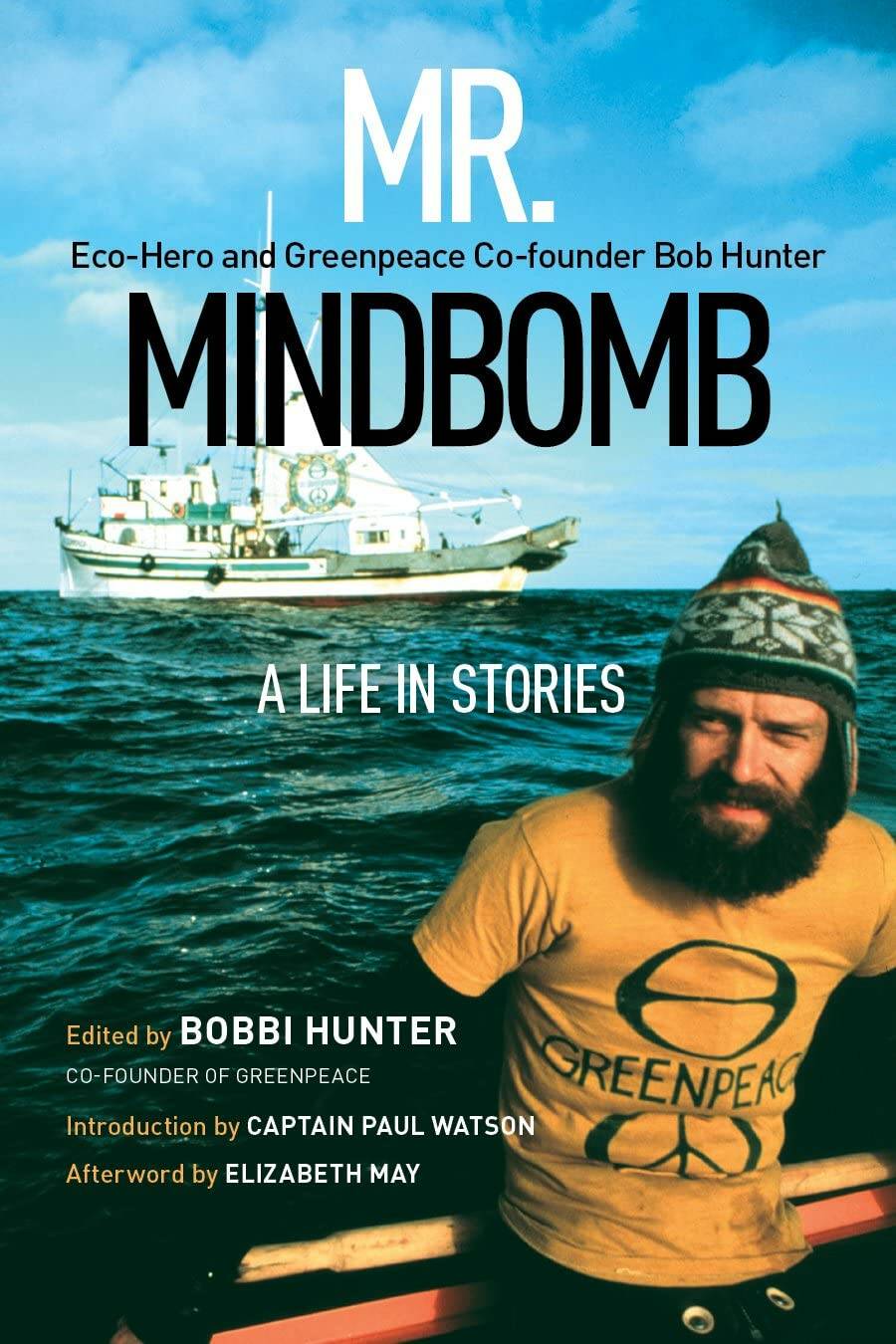Memories of a maverick
St. Boniface-born Greenpeace co-founder fondly remembered in essay collection
Advertisement
Read this article for free:
or
Already have an account? Log in here »
To continue reading, please subscribe:
Monthly Digital Subscription
$0 for the first 4 weeks*
- Enjoy unlimited reading on winnipegfreepress.com
- Read the E-Edition, our digital replica newspaper
- Access News Break, our award-winning app
- Play interactive puzzles
*No charge for 4 weeks then price increases to the regular rate of $19.00 plus GST every four weeks. Offer available to new and qualified returning subscribers only. Cancel any time.
Monthly Digital Subscription
$4.75/week*
- Enjoy unlimited reading on winnipegfreepress.com
- Read the E-Edition, our digital replica newspaper
- Access News Break, our award-winning app
- Play interactive puzzles
*Billed as $19 plus GST every four weeks. Cancel any time.
To continue reading, please subscribe:
Add Free Press access to your Brandon Sun subscription for only an additional
$1 for the first 4 weeks*
*Your next subscription payment will increase by $1.00 and you will be charged $16.99 plus GST for four weeks. After four weeks, your payment will increase to $23.99 plus GST every four weeks.
Read unlimited articles for free today:
or
Already have an account? Log in here »
Hey there, time traveller!
This article was published 03/06/2023 (895 days ago), so information in it may no longer be current.
Robert (“Bob”) Hunter is an undeservedly unheralded figure in Manitoba.
Ontario has twice honoured the pioneering environmental activist and co-founder of Greenpeace in its landscapes.
It created the 400-acre Bob Hunter Memorial Park in the greater Toronto area. And Toronto city council later named a 17-hectare municipal park near Scarborough Bob Hunter Greenspace.
The Canadian Press files
In this 1976 photo, Greenpeace co-founder Bob Hunter addresses a crowd of 2,000 supporters in Vancouver at a rally following the Greenpeace VII anti-whaling expedition.
But the native son of St. Boniface, who got his start as a reporter for the Winnipeg Tribune, has nada here to recognize him.
Hunter’s life was heroic (he died in 2005) in the sense that it was lived with high moral purpose.
The “mindbomb” of title was a strategic creation of Hunter the ex-journalist-turned-eco-activist.
As his arch environmental-activist colleague and sometime rival Paul Watson puts it in the book’s introduction: “He knew how to create a story and how to keep the story energized and relevant, and he had absolutely no qualms about inserting himself into the narrative.
“He was an absolute master of gonzo journalism. Bob coined the term ‘mindbomb,’ which was the 1970s equivalent of going viral.”
Hunter was front and centre for all of Greenpeace’s media-frenzied eco-warrior conflicts — the 1971 voyage to halt U.S. nuclear tests at Amchitka Island off the Alaska coast, the 1975 north Pacific anti-whaling campaign and the 1976 campaign to halt the “whitecoat” harp-seal pup slaughter off Labrador’s coast. Greenpeace ultimately prevailed in all three conflicts, in no small part due to Hunter’s media-savvy heroics and communications.
But he wasn’t just an environmental warrior.
People forget he was also a writer. He authored 14 books and won a 1991 Governor General’s Award for literature for his book Occupied Canada: A Young White Man Discovers His Unsuspected Past.
Almost inevitably in a collection of 55 pieces by almost as many different authors (a few did double or triple duty as contributors and his widow, Bobbi Hunter, contributed a half-dozen pieces and a preface), the quality of the writing typically varies wildly.
Not so much here. The collection’s mini essays and remembrances are almost uniformly good, a few exceptionally so.
In many ways this is biography and history via anecdote — and what great anecdotes.

Mr Mindbomb
They nicely trace the birth of the environmental movement in Canada via the medium of Hunter’s personality and story, with remembrances of moments and events that range from high drama to soap opera.
A couple of the best pieces feel like, or are about, conversations with Hunter. Conversations that are at once comfortable and engaging, yet perceptive and knowledgeable.
And a couple of the best pieces are also by guys with Winnipeg roots.
Physicist and writer Walt Patterson’s accounts of his and Hunter’s meetings and doings in 1960s England is a particularly warm remembrance. Likewise that of another former Winnipegger, the founder of X-Kalay — Canada’s first residential treatment centre for addicts, alcoholics and ex-cons — Dave Berner, whose recollections of his local teenage encounters with Hunter foreshadow the public environmental activist he became.
The net effect of these lucid, literate and sometimes comic short pieces is to leave you greatly admiring Bob Hunter.
And that’s the book’s express intention.
Douglas J. Johnston is a Winnipeg lawyer and writer.

